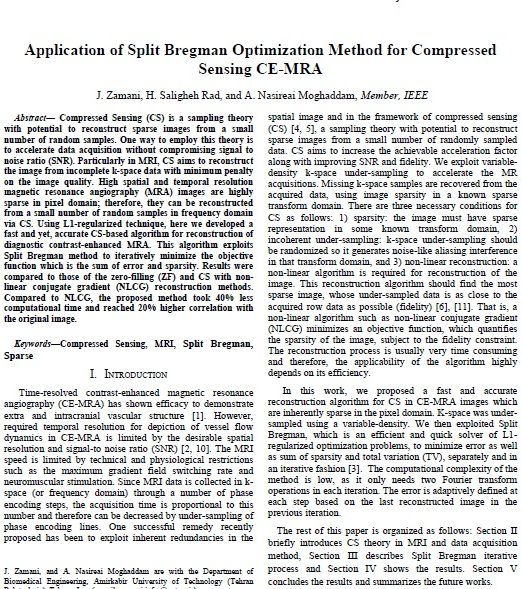Application of Split Bregman Optimization Method for Compressed Sensing CE-MRA
Abstract
Compressed Sensing (CS) is a sampling theory with potential to reconstruct sparse images from a small number of random samples. One way to employ this theory is to accelerate data acquisition without compromising signal to noise ratio (SNR). Particularly in MRI, CS aims to reconstruct the image from incomplete k-space data with minimum penalty on the image quality. High spatial and temporal resolution magnetic resonance angiography (MRA) images are highly sparse in pixel domain; therefore, they can be reconstructed from a small number of random samples in frequency domain via CS. Using L1-regularized technique, here we developed a fast and yet, accurate CS-based algorithm for reconstruction of diagnostic contrast-enhanced MRA. This algorithm exploits Split Bregman method to iteratively minimize the objective function which is the sum of error and sparsity. Results were compared to those of the zero-filling (ZF) and CS with nonlinear conjugate gradient (NLCG) reconstruction methods.
Compared to NLCG, the proposed method took 40% less computational time and reached 20% higher correlation with the original image.

